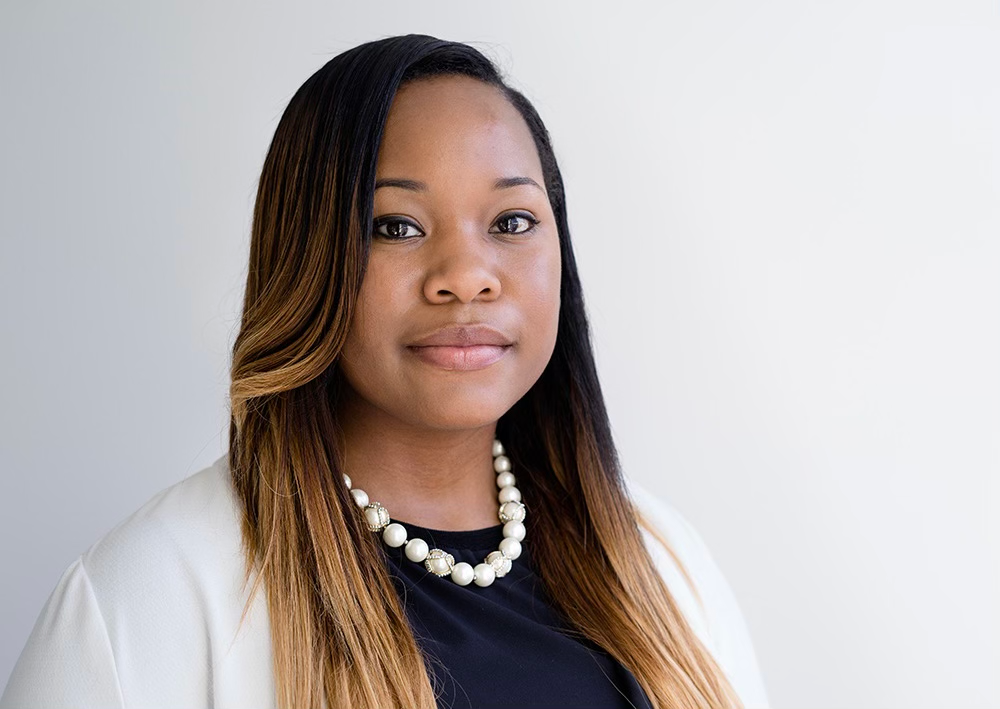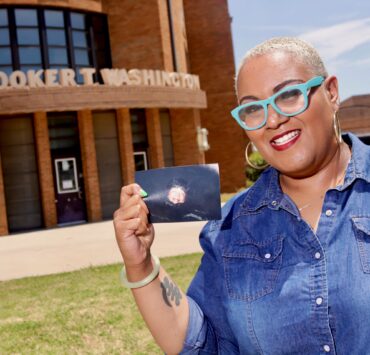Human Rights Watch Researcher & Advocate
Our 918 column this week features a conversation with writer and reporter Madison Wells-James and racial justice researcher and human rights advocate for the Human Rights Watch, Dreisen Heath. Wells-James interviewed Heath as part of a journalism/feature writing class that Oklahoma Eagle editors led with nationally renowned journalist and University of Maryland Professor DeNeen Brown. Heath, who was born in Tulsa, is a leading expert in reparations and reparative justice. Her work involves advocating for racial justice issues while applying international human rights law. In 2021, Heath submitted written testimony to congress titled “Exploring the Path to Reparative Justice in America.” One of her recent projects, “The Case for Reparations in Tulsa” focused on the conditions of inequality for residents of that community stemming from the 1921 Tulsa Race Massacre.
1. Why is critical race theory such a contentious topic now, even though there have been conversations about this academic framework for decades?
This is not about education curriculum critical race theory. This is about history that has intentionally been erased for centuries. People are just getting to know the reality, the roots, and the foundations of what the U.S. is all about. When you look at Oklahoma in particular, it is no coincidence that around the centennial of the Tulsa Race Massacre is also the time that House Bill 1775 (an Oklahoma statute that restricts the teaching about race) gained speed. This is only made possible because of the fear and grievances of white people and the mere functions of what white supremacy functions as and that is as a means of social control.
2. What are some of the misconceptions of opponents or people who simply don’t understand CRT as an academic framework?
Essentially that it is something that is taught through K through 12 schools. No critical race theory is taught during that primary education time. I mean that is just, that’s just made up. Perhaps that’s a part of the hysteria. A part of erasure is getting people to believe in a lie. That’s just the opposite of the truth. You may have it in a liberal arts college or this is something that people are exploring in legal institutions, law schools, and other graduate programs that are dealing with the impacts, the ongoing impact of colonialism and enslavement in the U.S.
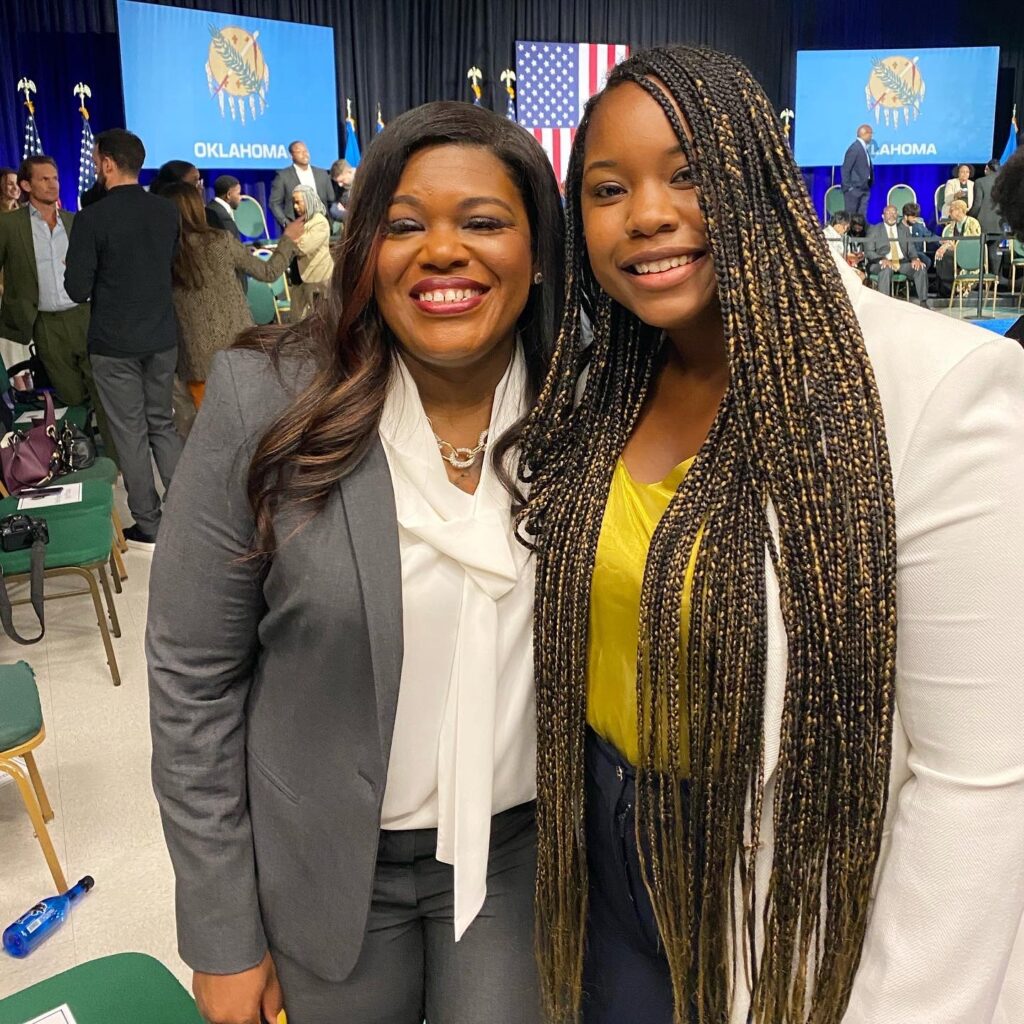
3. Do you think critical race theory and the conversation about it is mainly a Black and white American issue?
If we are recognizing that this is really an attempt to erase and censor young people’s ability to learn about historical and ongoing injustices, then this is a global issue, right? This is something that European countries and other countries could possibly take on as also their fight to censor this kind of education. Colonialism and enslavement are themes and realities of the global world, not just the U.S. But the U.S. knows and has known for centuries how to exploit that to continue to marginalize people as an attempt to influence society. We are in the U.S. and yes, the “CRT and anti-CRT” movement is largely based in the U.S. but, oppression and racism, and sexism have no borders.
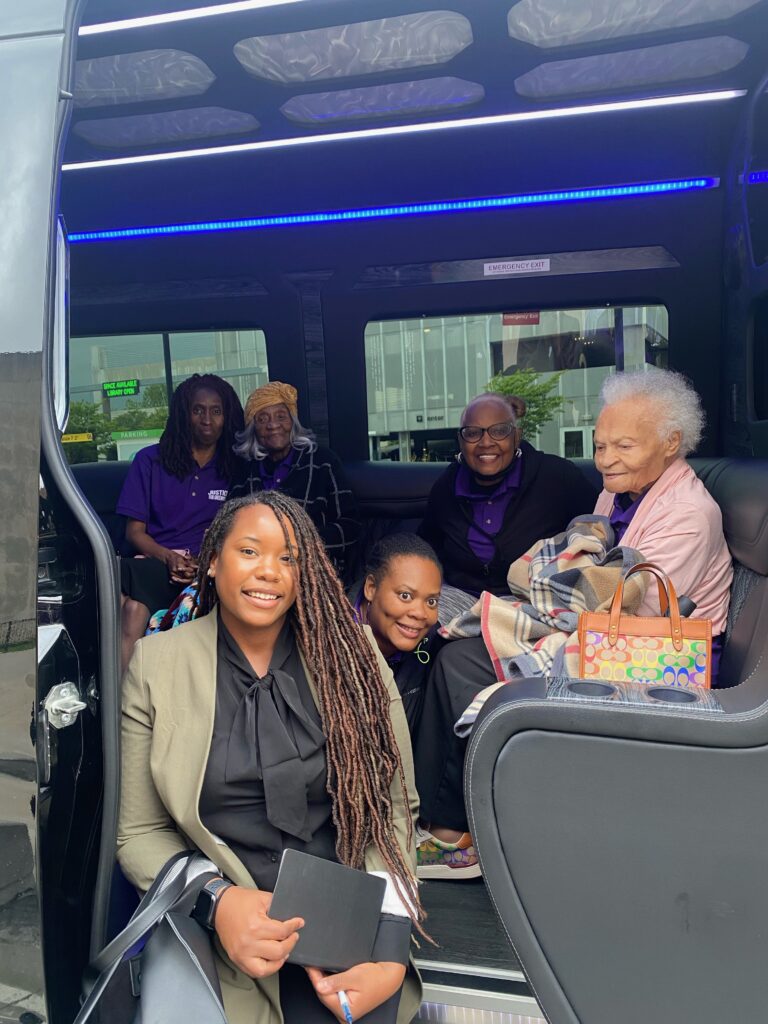
4. Would you say allowing kids to talk about history the way it was, and to face America’s race and racism is a solution to help prevent future instances of racial injustice or human rights violations?
Education and knowing the truth are at the core of transforming and eradicating injustice, and there has to be a massive overhauling of these systems. There is an individual responsibility that we all have and not just education in the sense that you’ve gone through K through 12, college, etc. Education in the sense that you’re taking in truthful information about the way you exist in this world and your relationality to other people which does not always come in classrooms.
5. What does reparatory justice look like in the American context and does CRT have any role in achieving that justice?
This entire discussion really from book banning to “anti-CRT” to all of the restrictive laws that mirror Jim Crow-era laws, is all indicative and actually makes for why a comprehensive reparations program is necessary. To undo not just these historical harms that we’re dealing with but the current harms that are happening with the 103 different bills that have been introduced to state legislatures that are targeting and censoring this kind of truth-telling. If anybody has been following and as someone who was ingrained in this movement, the reparations movement in the U.S. is at the highest it’s ever been momentum-wise, in terms of initiatives that are happening at the local level, at the state level, and even the progress at the federal level.
6. Is it at all possible that critical race theory promotes an unhealthy self-image of the oppressor and the oppressed?
Absolutely not and I will tell you why. Even the coursework of critical race theory. It’s a lens through which you are seeing the world, a lens that is unfiltered. It’s unfiltered with oh come to America for this American dream. It’s unfiltered with you can be a hard-working Black woman and do anything and everything you want. The reality within the critical race theory lens is that as a Black woman you can do anything and everything you want and these are the obstacles, the systematic and systemic obstacles that you’re going to have to overcome while navigating that journey.
7. For people whom our society considers marginalized groups, what would you say to people in those groups who might oppose critical race theory?
By opposing critical race theory, you’re opposing the lived reality and humanity of people that walk among you. You need to really sit with those feelings and reverse them if you’re going to be a healthy human being and contribute to society. We are trying to move forward not backward. Anyone who wants to move us backward will be pushed with strong resistance. So, you either get on the train of the right and right the wrongs and repair and forwardness and truth-telling, or you get on this train of destruction and violence and denial of people’s humanity. There’s no wishy-washiness. There’s no maybe. There’s either you’re on this side or that side.
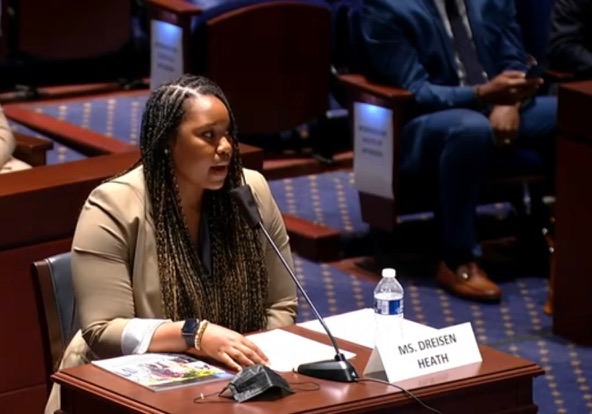
8. When you are not researching, writing reports, or advocating for human rights, what is something that you like to do for yourself?
There’s such power in being with people who have survived centuries of harm, and there’s such power that really is bestowed upon us by our ancestors to keep moving. I identify as a Black woman, it’s amazing to know that I’m here, that I’m existing because they tried to take us all out. Look at us just existing and existing within a community that cares about the well-being of our future. I appreciate being in the community, and organizing with the community in a myriad of ways. The personal is the political. That is not separated. But I also enjoy hikes in the mountains and playing basketball.
9. What are your individual goals in your position and how do you wish to have a lasting impact?
We would know we were in a healthy democracy if reparations were applied where they needed to be, and so I’m committed to the long-term fight. I’m committed to pushing through all of the nasty and obstructive political nature and politicization of the issue. I’m willing to continue to ground reparation as a human issue and as a human survival issue. My other goals are to continue to build with people, meet people where they are, and know that people are organizing all across the country in their local backyards trying to make a change. A lot of people are like ‘change doesn’t happen overnight it’s gradual blah blah blah’ and I believe that organizing is gradual and you’re always building towards something else, but I also believe stuff can be struck down in a matter of days. Change can happen in a matter of days.
10. Bonus question: What can we do individually to help tackle these issues of injustice?
Be committed to educating yourself about what reparations are and what they’re not. Healing is defined in so many different ways. I think everyone has their own individual definition of healing, and I don’t want to define that in a broad sense. The fact that you can recover from intentional injury and then possibly manifest an even better life for the generation after you is the lens through which I look at healing. If there is not a reparations initiative in your backyard, there needs to be. In order for us to actually repair holistically the harms that have happened in this country, there are going to have to be reparations efforts at the federal level, the state level, at the local level, and at the institutional level. So that means there’s room for everybody to get involved.
About the series
The Oklahoma Eagle, in partnership with the University of Maryland and the University of Wisconsin, and the “On the Ground Reporting” project, collaboratively guides participating students through the process of publishing stories that focus on community groups in Tulsa, Oklahoma. The class was led by Maryland associate professor and Washington Post staff writer DeNeen Brown, an Oklahoma native, who teamed with Eagle editors M. David Goodwin and Gary Lee. – Click to learn more








